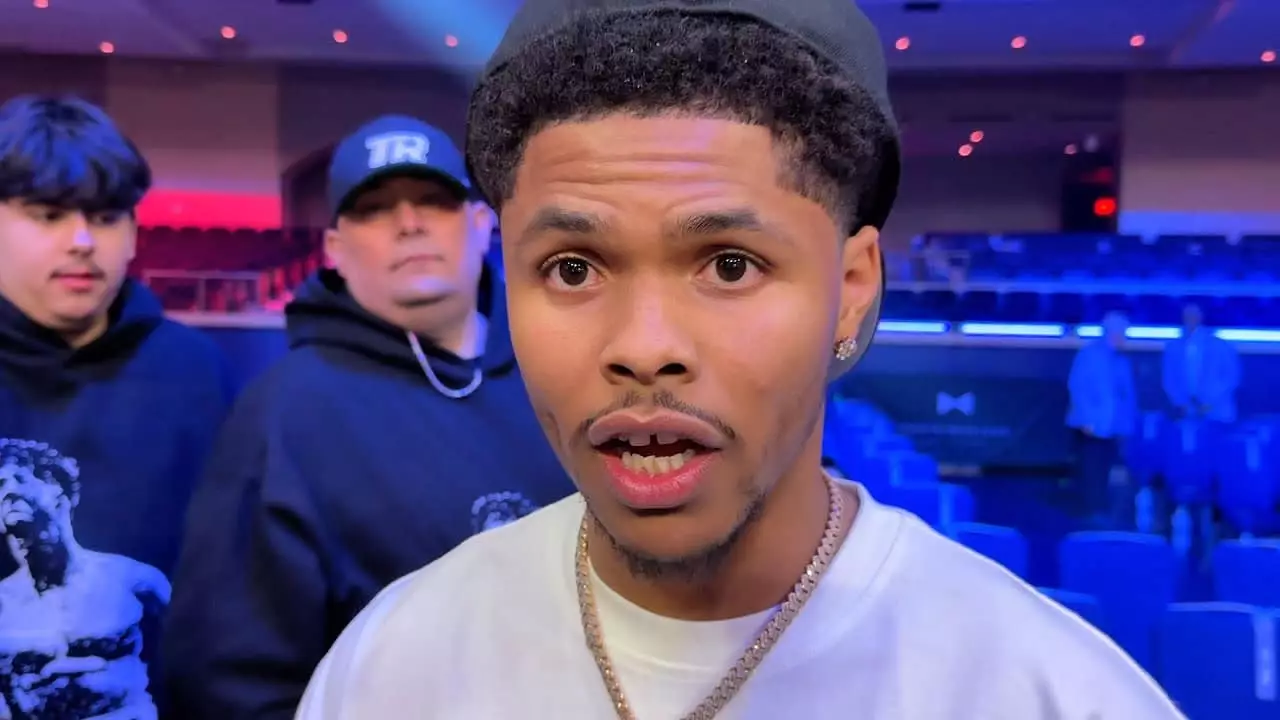In the world of boxing, mental readiness often dictates how fighters perform in high-stakes scenarios. After Gervonta Davis’ underwhelming display against Lamont Roach at Brooklyn’s Barclays Center on March 1st, fellow fighter Shakur Stevenson weighed in, maintaining that Davis was indeed the same fighter despite his apparent lack of focus. This assertion raises eyebrows, especially considering that many observers noted Davis’ continual distraction during the fight, which culminated in a striking moment where he took a knee and called for a timeout. Was Davis truly the same competitor we’ve seen dominate the ring, or was he, in fact, mentally checked out?
Many fans were left reeling as they watched Davis seemingly engaging more with the crowd than with Roach, leading to questions about his state of mind. Such behavior suggests that while physical prowess is indeed critical in boxing, the mental aspect should not be underestimated. It becomes a vital component of a fighter’s success. For Davis, whose record stands at an impressive 30-0-1 with 28 KOs, this fight could mark a tipping point. The visual of him appearing mentally disengaged is not merely an observation but a potential red flag for future matchups.
Shakur Stevenson: Friend or Foe?
Interestingly, the tension between Stevenson and Davis isn’t simply rooted in competitive rivalry; it’s also personal. Many speculate that Stevenson harbors a genuine desire to get a shot at Davis, labeling him a “walking goldmine” due to both his fanbase and lucrative potential. However, there’s an underlying current of animosity that complicates their dynamic. Stevenson’s jab at Davis’ focus reveals a fighter eager to capitalize on perceived weaknesses, but it also raises questions about his own motives. Is Shakur Stevenson genuinely invested in enhancing the sport’s competitiveness, or is he merely seeking a payday that he feels eludes him?
Critics may suggest that Stevenson’s fighting style has contributed to his current positioning in the boxing landscape, with his recent matches attracting mixed reactions. As he finds himself on undercards battling lesser-known opponents, it becomes evident that marketing his brand is contingent upon facing stiffer competition. The risk of losing to heavy hitters like Roach could jeopardize a lucrative future encounter with Tank Davis. As he carefully maneuvers through the lightweight division, how much of his strategy is rooted in self-preservation?
The Stakes of Medical Mental Health in Boxing
Davis’s recent struggles may also spotlight an important issue that extends beyond the boxing ring: the mental health of athletes. Shakur Stevenson, while dismissive of Davis’ mental engagement, hints at an attitude prevalent among many fighters— that of ignoring mental health crises in favor of physical capability. In a sport where physicality reigns supreme, acknowledging mental limitations might be perceived as weakness. However, it begs discussion on whether this stigma could hinder a fighter’s career long term.
Moreover, Stevenson’s reaction to Davis’ distractions speaks to a broader cultural attitude within the athletics community. Rather than offering support or acknowledging the pressures these fighters face, dismissing their struggles risks normalizing a dangerous culture where mental health issues are buried. In light of these factors, Stevenson’s perspective might be more layered than a mere rivalry; it could be a reflection of the larger stakes involved in the careers of fighters like Davis and himself.
Marketability and Risk in Boxing
From the business side, marketability has become as essential as athletic prowess in boxing. For Stevenson, who is perceived as playing it safe by avoiding high-risk opponents, this tactical approach may backfire. Rather than amplifying his appeal, accepting fights against weaker competitors could diminish respect within the boxing community. The missed opportunity to square off against fighters like Andy Cruz, a tenacious young talent, leaves fans speculating about Stevenson’s ambitions.
Shakur’s multifaceted strategy—balancing the need to build an impressive record against the desire to face marquee opponents—places him in a precarious situation. Achieving a win at all costs is a common sentiment in sports, but when the victory is at the expense of credibility, it redefines success.
As the boxing narrative unfolds, one must question: how much longer can Stevenson remain a presence in the lightweight division without evolving? The landscape is quickly changing, and with potential clashes on the horizon, both fighters must grapple with the realities of their choices—whether it means confronting their vulnerabilities or choosing the path of least resistance for the sake of financial security.

